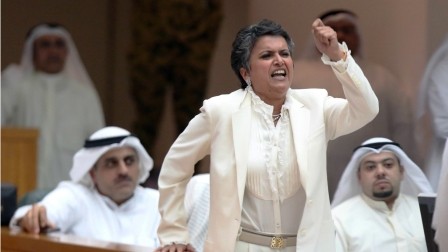In a shocking turn of events, Kuwait has revoked the citizenship of over 26,000 married women due to a controversial new law, leaving them stateless and sparking global outrage. As of May 2025, this Muslim country has intensified its campaign to reshape national identity, targeting women who gained Kuwaiti citizenship through marriage. The policy, driven by Emir Mishal al-Ahmad al-Jaber al-Sabah, aims to restrict nationality to those with ancestral ties, but it’s tearing families apart and raising serious human rights concerns. This blog dives into the latest developments, the impact on affected women, and what this means for Kuwait’s future.
Why Kuwaiti Women Are Losing Citizenship
The Kuwaiti government’s aggressive citizenship review, launched under Decree 116/2024, has upended lives. Previously, foreign women married to Kuwaiti men could apply for citizenship after five years of marriage, often requiring children. The new law, effective December 2024, eliminates this pathway entirely. Authorities claim it combats fraudulent citizenship acquisitions, but critics argue it disproportionately targets women, especially divorcees and widows. Over 37,000 people, including at least 26,000 women, have lost their Kuwaiti nationality since August 2024, with some estimates suggesting even higher numbers.
The revocations stem from a broader initiative to “preserve national identity.” The Supreme Committee for Citizenship Investigation, led by Sheikh Fahad Al-Yousef Al-Sabah, examines cases weekly, publishing lists of those stripped of citizenship. Women like Lama, a Jordanian grandmother who lived in Kuwait for over 20 years, woke up to frozen bank accounts and revoked rights, unable to access healthcare or employment benefits. The policy’s swift implementation leaves little room for appeal, as decisions bypass judicial oversight.
The Human Cost of Kuwaiti Policy Changes
The human toll of this Kuwaiti citizenship purge is staggering. Women who lose their nationality face immediate challenges: frozen bank accounts, revoked driver’s licenses, and restricted access to government services. Many, now stateless, cannot buy property, enroll children in school, or secure jobs. The emotional impact is equally devastating. Divorcees and widows, often labeled “cheats” by local media, endure public shaming and financial ruin. Some women describe feeling like “hostages,” unable to leave Kuwait due to debts or fear of deportation.
- Economic Fallout: Stateless women lose access to government jobs and pensions, plunging families into poverty.
- Social Stigma: Media campaigns vilify affected women, calling them “gold-diggers.”
- Children’s Rights: Kids of Kuwaiti mothers and foreign fathers gain temporary citizenship until age 21, but only if the father is deceased, a prisoner of war, or divorced.
This selective targeting deepens Kuwait’s statelessness crisis, already affecting the Bidoon community, estimated at 100,000 people. Human rights groups warn that the policy violates international treaties, like the Universal Declaration of Human Rights, which guarantees everyone a nationality.
A Controversial Push for “Purity”
Kuwait’s leadership defends the revocations as a necessary purge of “impurities” in national identity. Emir Mishal, who dissolved parliament in May 2024, frames the policy as a reform to protect Kuwait’s demographic makeup. The government points to cases of fraud, such as a citizen who sold fake citizenship credentials, creating 234 fraudulent citizens. Yet, the blanket revocation of women’s citizenship, especially those naturalized through marriage since 1987, raises questions about fairness. Critics argue the Al Sabah ruling family uses these measures to tighten political control, especially after years of electoral turmoil.
The new law also introduces modern scientific methods, like DNA testing, to verify ethnic lineage for naturalization. This shift prioritizes blood ties over long-term residency or contributions to society, alienating expatriate families. High-profile cases, like the revocation of citizenship from pop singer Nawal The Kuwaiti, highlight the policy’s reach, affecting even celebrated figures.
What’s Next for Kuwaiti Citizenship?
The future looks grim for those impacted by Kuwait’s citizenship crackdown. A “grievances committee” was established to review cases, but with Article 8 (which allowed citizenship through marriage) abolished, reinstatement seems unlikely. The upcoming UN Special Rapporteur visit in September 2025 may pressure Kuwait to address human rights violations, but immediate relief remains elusive. Meanwhile, a new residency law set for March 2025 will impose stricter penalties, further complicating life for stateless individuals.
The international community, including NGOs like Human Rights Watch, urges Kuwait to halt revocations and align its laws with global standards. For now, thousands of women face an uncertain future, caught in a policy that prioritizes national purity over human dignity.
Take Action Now
The Kuwaiti citizenship crisis demands global attention. Share this story to raise awareness, contact human rights organizations to support affected women, or write to Kuwait’s National Assembly at media@kna.kw to demand fair policies. Every voice matters in the fight for justice.
